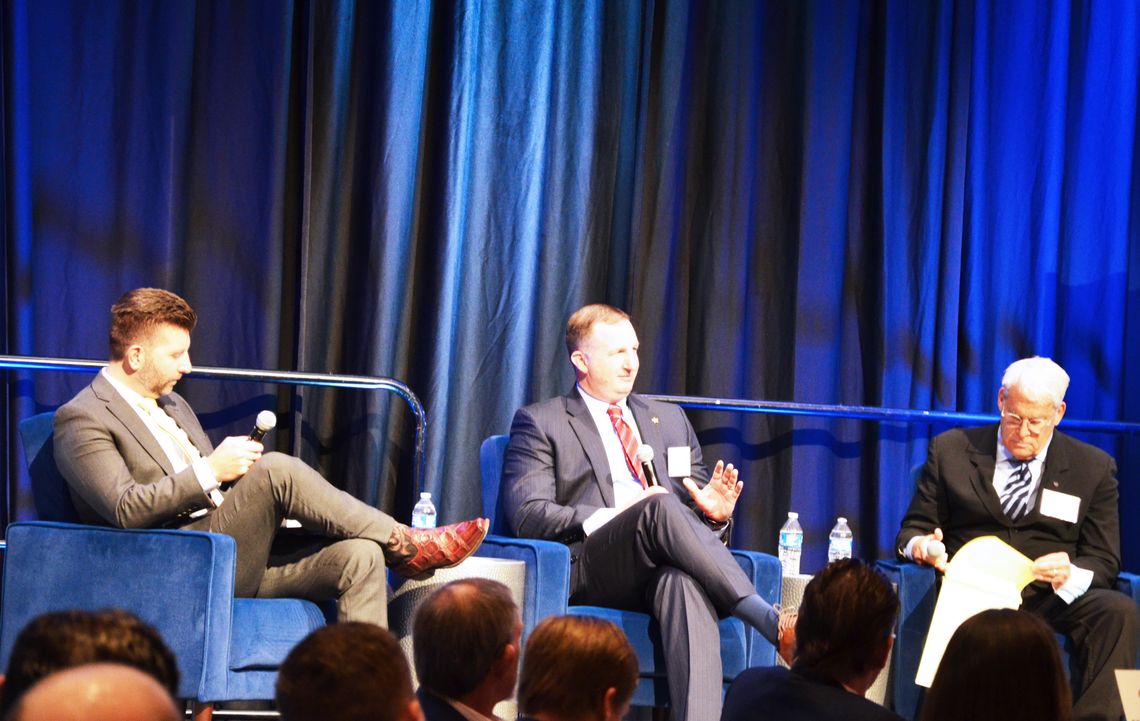As a new year begins, federal and local economic experts provided insight on where the economy is headed in 2023 during the Greater San Marcos Partnership’s annual Texas Innovation Corridor Economic Outlook.
Roberto Coronado, senior vice president in charge of the Federal Reserve for the Dallas, San Antonio, and El Paso branches, served as the presenting speaker during Thursday’s event at the City Of San Marcos Conference Center. GSMP President Jason Giulietti provided a regional economic development update followed by a panel discussion with Alan Adelman, senior fund manager and research analyst for Frost, and Lincoln Talbert, Chief Financial Officer for Texas Regional Bank.
Coronado gave a broad economic outlook, stating that although he doesn’t have a perfect crystal ball, he sees the economy is slowing down.








